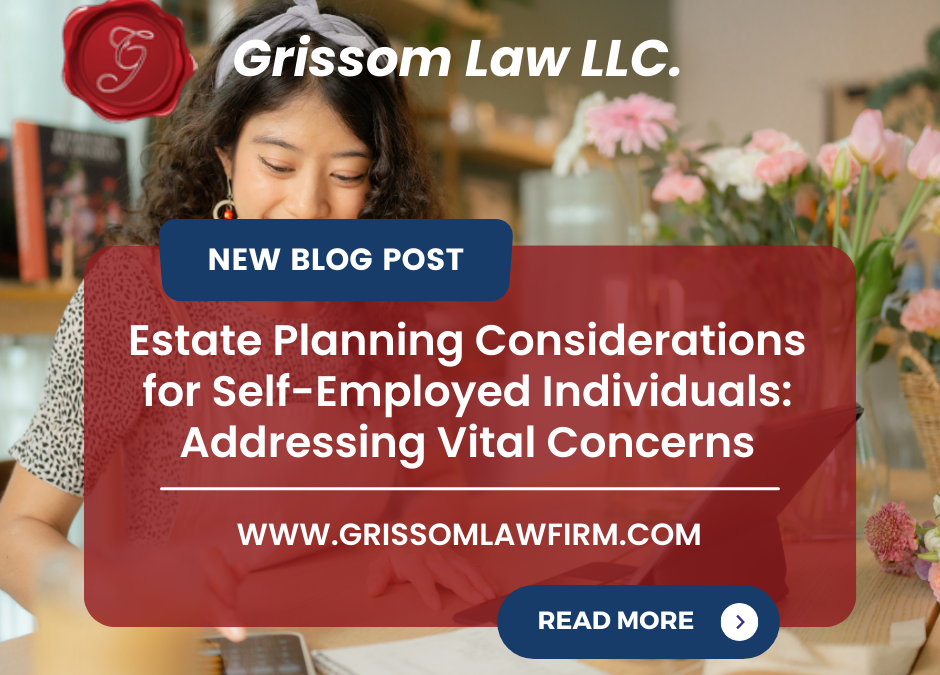Being self-employed comes with a unique set of responsibilities and freedoms. As a self-employed individual, you’re not only the owner but often the sole operator of your business. This dynamic presents both opportunities and challenges, particularly when it comes to estate planning.
1. Protecting the Financial Future of the Self-Employed
When you’re self-employed, you’re in charge of your financial destiny. This means you must take deliberate steps to secure your financial future and that of your business. Key components of this concern include:
Retirement Planning: Without the traditional employer-sponsored retirement benefits, self-employed individuals must proactively establish their retirement accounts. An experienced advisor can guide you through options like Simplified Employee Pension (SEP) IRAs, Solo 401(k)s, or SIMPLE IRAs to ensure you’re building a solid retirement foundation.
Insurance Coverage: As a self-employed individual, you need to safeguard your well-being and that of your business against unforeseen circumstances. Explore disability insurance to protect your income if you’re unable to work due to a disability. Additionally, life insurance can provide a financial safety net for your loved ones. Consider business insurance to shield your enterprise from risks that could threaten its continuity.
Investment Strategies: Collaborating with financial advisors will help you develop investment strategies that align with your goals, risk tolerance, and circumstances. An advisor can help you diversify your investments wisely and optimize your financial growth potential.
2. Protecting Your Business Endeavors
Your business is more than a means of income—it’s a manifestation of your hard work and passion. Protecting it is essential. Here’s how to ensure your business continues to thrive even if unexpected events occur:
Business Succession Planning: Should the unexpected occur, a clear business succession plan will ensure a smooth transition of your business to a successor. This safeguards both your legacy and the livelihood of your loved ones who may depend on the business.
Legal Structure Review: An attorney specializing in estate planning can review your business’s legal structure to ensure it aligns with your estate planning goals. For example, forming a Limited Liability Company (LLC) could offer personal liability protection.
Asset Protection: Proper estate planning can also protect your business assets from creditors or legal claims, helping to ensure the longevity of your entrepreneurial efforts.
3. Ensuring Seamless Wealth Transfer
Transferring your wealth to your loved ones requires meticulous planning to avoid unnecessary taxes and complications. Self-employed individuals need to address this concern by:
Creating a Will and Trust: Drafting a will is essential to outline your wishes for asset distribution. Establishing a trust can facilitate smoother wealth transfer by bypassing probate and offering more control over how your assets are distributed.
Accounting for Business Assets: Self-employed individuals should carefully account for business assets in their estate plan. This includes intellectual property, business premises, and any valuable business-specific assets.
Tax Considerations: Consulting with financial and legal professionals can help mitigate potential tax burdens that could arise during wealth transfer. They can provide insights into strategies like gifting, charitable giving, and more.
As a self-employed individual, you’ve taken the reins of your career and financial journey. By addressing these three essential concerns through comprehensive estate planning, you’re not only safeguarding your future but also ensuring a legacy that benefits both your loved ones and the business you’ve built. At Grissom Law, LLC, we can tailor a strategy that secures your financial well-being, safeguards your business endeavors, and ensures a seamless transfer of wealth to the next generation. Your commitment to planning today will shape a brighter tomorrow for you, your loved ones, and the legacy you leave behind.
Disclaimer
This Blog/Web Site is made available for educational purposes only as well as to give you general information and a general understanding of the law, not to provide legal advice. By using this blog site you understand that there is no attorney client relationship between you and Grissom Law, LLC.
